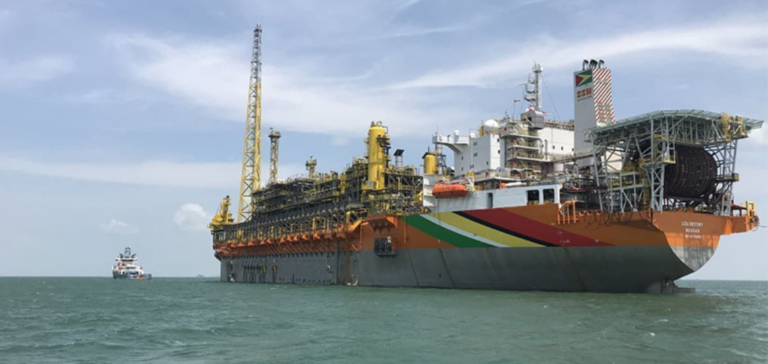On November 14, ExxonMobil announced the start of production at the Payara oil field, marking a significant turning point in Guyana’s oil industry. With this new initiative, the country’s total production is projected at 620,000 barrels per day (b/d). The Prosperity floating production, storage and offloading (FPSO) vessel plays a central role in this expansion, with initial production of around 220,000 b/d scheduled for the first half of next year.
Production Objectives and Development Plans for French Guiana
Alongside this announcement, the Guyanese government highlighted ambitious plans to develop 45 wells at the Payara field, aiming to extract 600 million barrels of oil. This effort is seen as a step towards achieving a combined production capacity of over 1.2 million b/d on the Stabroek block by the end of 2027.
Environmental implications and sustainability efforts
This major development is not only an economic milestone for French Guiana, but also raises crucial questions about environmental impact and sustainability. ExxonMobil emphasized that each new project supports economic development and access to resources that benefit Guyanese communities. This is in line with the Guyanese government’s statement that it plans to use the revenues generated by this resource to improve public infrastructure, the education and health systems, and various social programs.
Environmental implications and sustainability efforts
As part of its efforts to ensure sustainability and meet global energy demand, ExxonMobil is showcasing the Prosperity FPSO, one of the first two FPSOs in the world to receive a SUSTAIN-1 rating from the American Bureau of Shipping. This award recognizes the sustainability of the ship’s design, documentation and operating procedures.
Performance and Environmental Impact of Projects in French Guiana
According to Rystad Energy, an independent research firm, ExxonMobil’s developments in French Guiana generate around 30% less greenhouse gas intensity than the average of ExxonMobil’s upstream portfolio. What’s more, these developments are among the most emissions-intensive in the world, exceeding 75% of the world’s oil and gas production assets.
Challenges and opportunities of oil production in French Guiana
However, these advances are not without environmental concerns. The question of the ecological impact of oil production in French Guiana, and the measures taken to mitigate the harmful effects on the local and global environment, remain subjects of debate. ExxonMobil’s commitment to sustainability and the reduction of greenhouse gas emissions is laudable, but requires ongoing monitoring and evaluation to ensure that these promises are translated into concrete action.
The collaboration between ExxonMobil and the Guyanese government indicates a shared desire to exploit natural resources while seeking to minimize environmental impact. This initiative could serve as a model for other countries and companies seeking to balance economic development with environmental responsibility.
ExxonMobil’s entry into production of the Payara field in French Guiana represents a major step forward for the country’s economy, while posing significant challenges in terms of sustainability and environmental impact. ExxonMobil’s efforts to reduce greenhouse gas emissions and implement sustainability measures are promising, but their long-term effectiveness remains to be assessed.






















